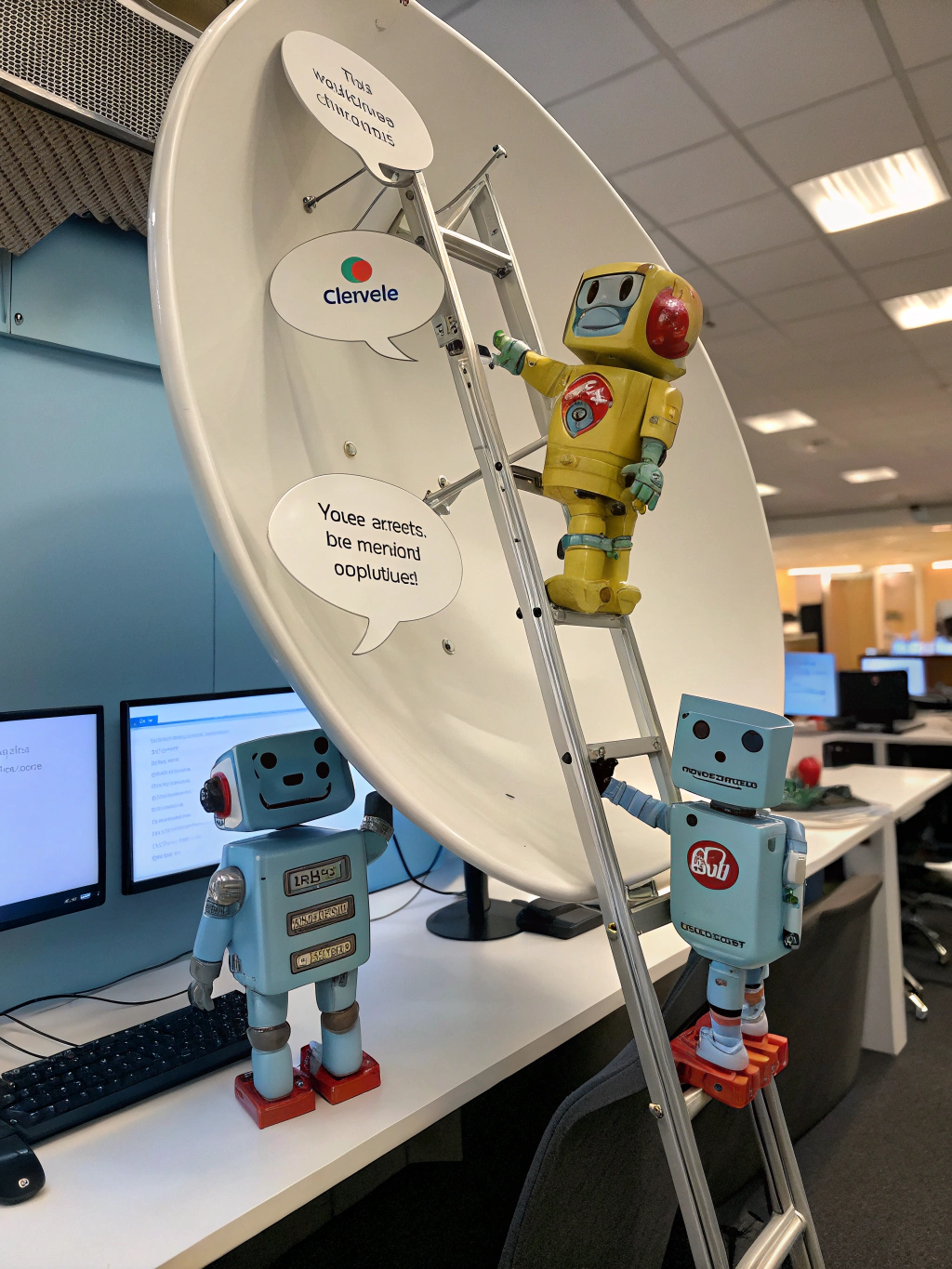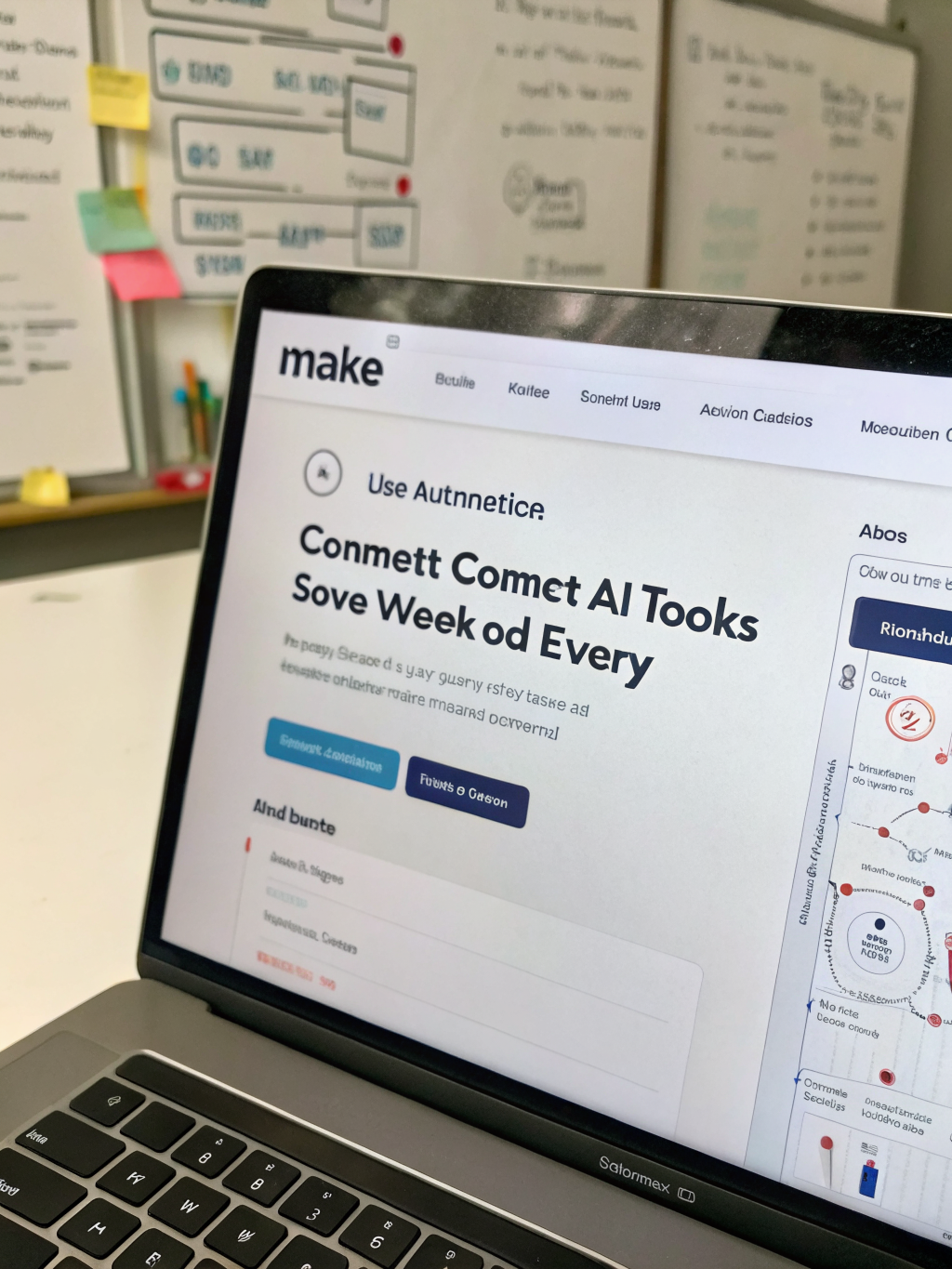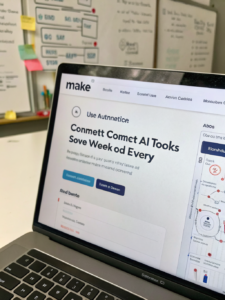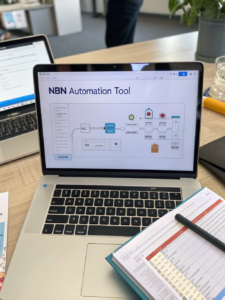Scaling Customer Happiness: Leveraging Chatbots for Efficient Customer Support Infrastructure
The Future is Now: How Chatbots for Customer Support Scaling Are Revolutionizing Business The world of business is evolving at warp speed. Customers demand instant gratification, personalized experiences, and 24/7 availability. Meeting these expectations can feel like an impossible task, especially for growing companies. That’s where chatbots for customer support scaling come in. These intelligent virtual assistants are no longer a futuristic fantasy; they’re a critical tool for businesses looking to enhance customer satisfaction, reduce operational costs, and gain a competitive edge. This post dives deep into how AI-powered conversational technology is transforming customer service, exploring the latest trends, benefits, and best practices. From crypto market insights influenced by AI sentiment analysis to how Automation is changing stock investments, we'll explore how these emerging technologies are impacting businesses today. Why Traditional Customer Support is Falling Short & The Chatbot Solution For years, businesses relied on traditional customer support channels like phone calls and email. However, these methods often struggle to keep up with the demands of a modern, always-on consumer. Long wait times, limited availability, and high labor costs are common pain points. The rise of ai customer support represents a paradigm shift. Chatbots provide instant responses to common queries, freeing up human agents to handle more complex issues. They operate 24/7, ensuring customers can always get the help they need. But it's not just about availability. Modern chatbots leverage Natural Language Processing (NLP) and Machine Learning (ML) to understand customer intent and provide personalized solutions. The Growing Demand for Instant Support Rising Customer Expectations: Consumers expect immediate responses, mirroring the instant gratification they experience with other digital services. Increased Volume of Inquiries: Businesses are facing an ever-increasing number of customer inquiries across multiple channels. Need for Scalability: Rapid business growth requires customer support solutions that can scale efficiently without significantly increasing overhead. Cost Optimization: Chatbots can automate repetitive tasks, reducing the need for large customer support teams. Key Benefits of Implementing Chatbots for Customer Support Scaling Implementing chatbots for customer support scaling offers a plethora of benefits. It’s not just about replacing human agents; it's about augmenting their capabilities and creating a more efficient customer service ecosystem. 24/7 Availability: Provide instant support around the clock, regardless of time zone. Reduced Operational Costs: Automate routine tasks, lowering labor expenses. Improved Customer Satisfaction: Offer instant answers and personalized experiences. Increased Agent Productivity: Free up human agents to focus on complex issues. Lead Generation: Qualify leads and capture customer information. Data Collection & Analytics: Gain valuable insights into customer behavior and preferences. Personalized Experiences: Tailor responses and offers based on customer data. Seamless Handover: Enable smooth transitions to human agents when necessary. Beyond Basic FAQs: Advanced Chatbot Capabilities Today’s ai customer support solutions are far more sophisticated than simple FAQ responders. They can: Understand Natural Language: Process and understand customer queries expressed in natural language, not just keyword-based searches. Personalize Conversations: Tailor responses based on customer history, preferences, and context. Integrate with CRM Systems: Access customer data from CRM systems to provide more relevant support. Resolve Complex Issues: Handle a wider range of inquiries through advanced AI algorithms. Proactive Support: Identify potential issues and offer assistance before customers even ask. Sentiment Analysis: Detect customer sentiment and escalate urgent cases to human agents. Navigating Crypto Markets and AI-Driven Financial Strategies The cryptocurrency market is a volatile and rapidly evolving landscape. Accurately predicting market movements is a challenge, and that's where Artificial Intelligence is making waves. AI algorithms are now being used to analyze vast amounts of data, including social media sentiment, news articles, and on-chain transaction data, to identify potential investment opportunities. This analysis, often utilizing techniques like Natural Language Processing (NLP), helps gauge public perception and predict price fluctuations. The rise of automated trading bots further highlights the role of AI in finance. These bots can execute trades based on pre-defined rules and algorithms, removing emotional biases and potentially improving investment returns. However, it's crucial to approach algorithmic trading with caution, as even the most sophisticated AI systems can face unforeseen market events. Investment Strategy AI Application Potential Benefit Risk Sentiment Analysis NLP to Analyze Social Media & News Predicting Market Trends Data Noise, Biased Information Algorithmic Trading Automated Trading Bots Reduced Emotional Bias, Faster Execution Technical Glitches, Unexpected Market Events Risk Assessment Machine Learning for Risk Modeling Improved Risk Identification & Mitigation Data Dependency, Model Limitations Automation and the Future of Stock Investments Beyond crypto, automation is reshaping the entire stock investment process. Robo-advisors, powered by AI, are providing personalized investment advice and portfolio management services to a wider audience. These platforms use algorithms to create diversified portfolios based on individual risk tolerance, financial goals, and time horizons. The use of Machine Learning (ML) in stock market analysis is particularly noteworthy. ML algorithms can identify patterns and correlations in historical data that humans might miss, potentially leading to better investment decisions. However, it’s crucial to remember that past performance is not indicative of future results, and no AI system can guarantee investment success. Furthermore, the increasing sophistication of automation requires a strong understanding of the underlying algorithms and their limitations to avoid unintended consequences. AI for Alternative Investments The influence of AI is not confined to traditional markets. It's finding its way into alternative investments such as real estate, private equity, and venture capital. AI can be used for due diligence, risk assessment, and portfolio optimization in these sectors. Implementing Chatbots for a Seamless Customer Experience Successfully implementing chatbots for customer support scaling requires a strategic approach. Here are key considerations: Identify Customer Needs: Analyze customer interactions to identify common questions and pain points. Choose the Right Platform: Select a chatbot platform that aligns with your business needs and technical capabilities. Consider factors like NLP capabilities, integration options, and scalability. Design Conversational Flows: Create intuitive and engaging conversational flows that guide customers to the information they need. Train Your Chatbot: Continuously train your chatbot with new data to improve its accuracy and effectiveness. Human Handover: Ensure a seamless handover to human agents when the chatbot cannot resolve an issue. Monitor Performance: Track key metrics such as resolution rate, customer satisfaction, and cost savings. Conclusion: Embrace the Future of Customer Service Chatbots for customer support scaling are transforming the way businesses interact with their customers. By leveraging the power of AI, businesses can provide instant support, reduce operational costs, and gain a competitive advantage. As AI technology continues to evolve, chatbots will become even more sophisticated and capable. The key is to embrace this technology and integrate it strategically into your customer service ecosystem. What are your thoughts on the future of customer support? Share your comments and experiences below! And don’t forget to share this post with your network. [Link to a related blog post about AI in Marketing][Link to a resource on chatbot platforms][Link to a case study on chatbot implementation]
Share this content:














Post Comment